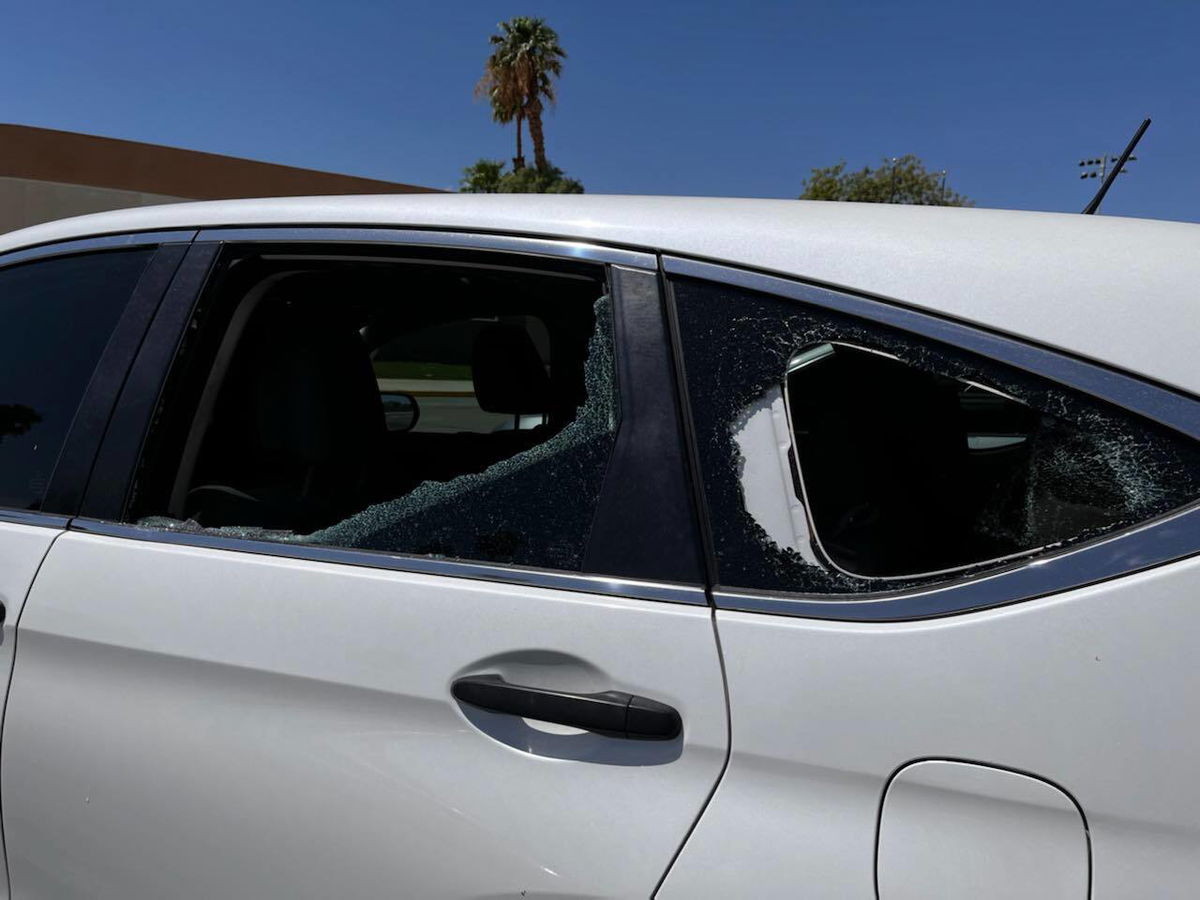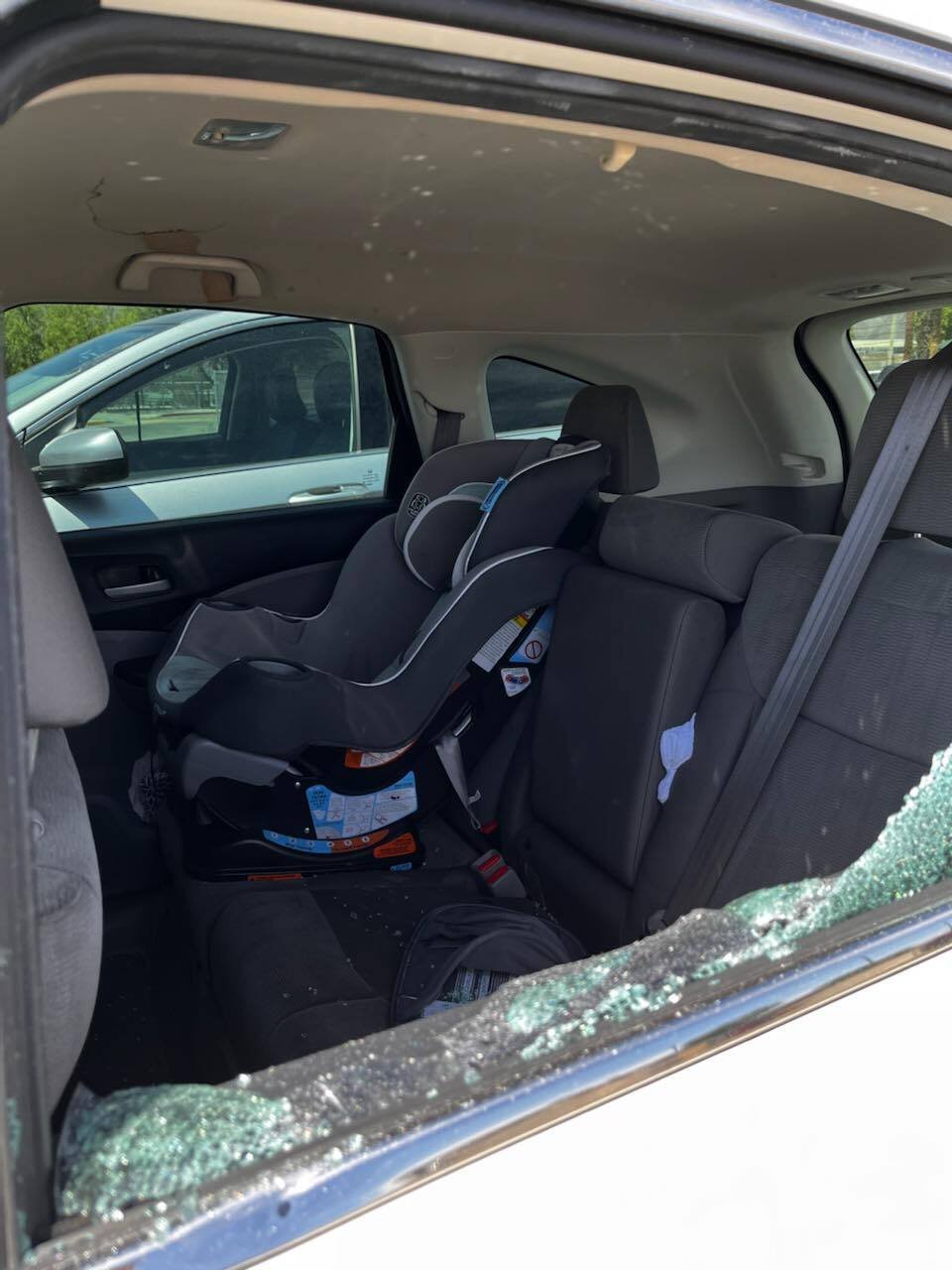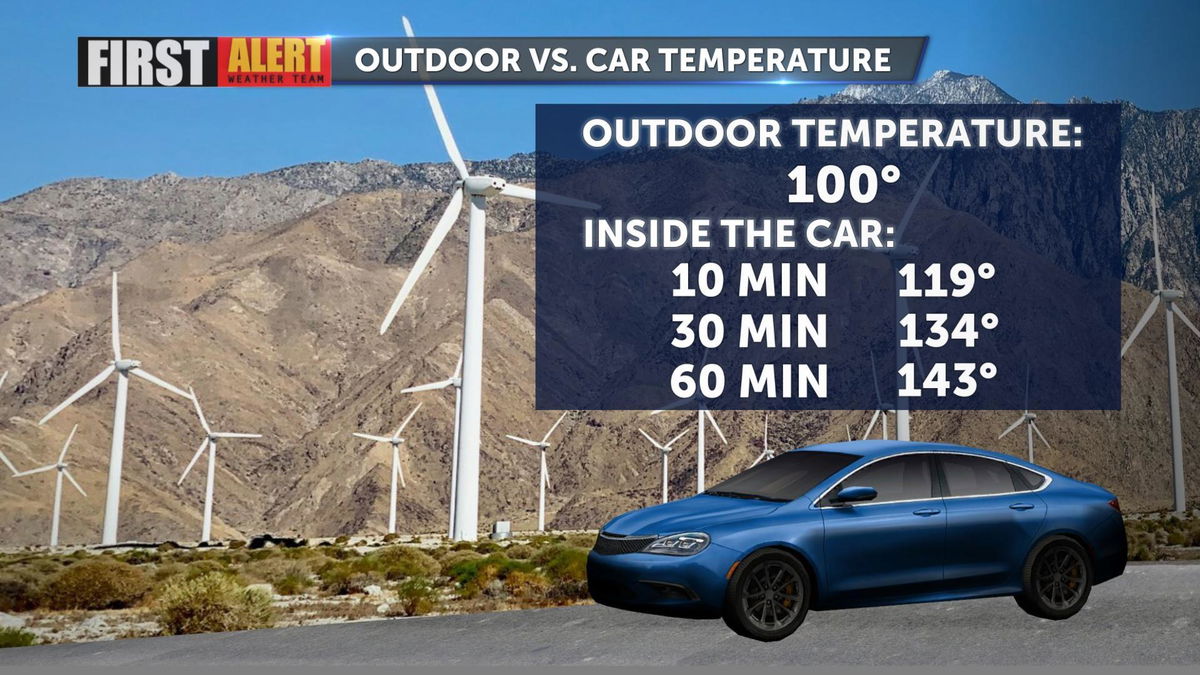Child rescued from hot car: Tips to keep your kids safe in the summer heat
Recently, Riverside County Sheriff's deputies rescued a young child from a hot car after the doors would not unlock.
Deputies had to break the car’s window, to save the child and reunite them with their parents. They urge you to check your locks to make sure they work.


Some cars come equipped with technology to alert you before heading out. “The signal comes up on the on the thing and it says beep beep beep- check the backseat," said Graham Quinn, who's visiting the Valley. "But for something like that in a car just to remind parents, you know, because sometimes they're busy and the kids could be asleep in the back and they forget about them.”
Quinn told News Channel 3 he’s had to use multiple cars when traveling out of town. At one point, he accidentally left his keys in the car. “I couldn't get in the car. So I had to wait half an hour for a guy to come out with a key to get to the to get me into the car.”
Fortunately, no one was inside. But he said if there was, it would have been very dangerous. " A small child in there probably wouldn't last.”
It’s also a reminder that in triple digit temperatures, the inside of your car gets even hotter. If it’s 100 degrees outside, it only takes 10 minutes for the inside of your car to reach 119 degrees.

For Nicole Holt, a mother to young child, told News Channel 3 she’s extra cautious when her baby is with her. “We have a little travel fan that we put on her car seat and dress appropriately,” Holt said.
Holt said she takes extra steps to ensure her baby isn’t left in the car unattended. “I normally don't like leave all the doors shut at one time, just because I have a lot of like anxiety about that. So I just normally keep at least something open at all times.”
Some tips to keep in mind (from the Children’s Hospital Los Angeles):
1. Look before you lock!
When you leave your car, ALWAYS open the back door and check the back seat before you lock your doors and walk away. Do this every single time—even if you’re 100% certain your child is not with you. Make it a habit to check.
Tell anyone who will be driving your child to also look before they lock. “It’s really important,” Arbogast says. “Just take a few seconds and do that double-check.”
2. Put your purse or phone in the back seat.
This habit forces you to check the back seat before you walk away. Simply place an item back there that you will have to take with you, such as a purse, briefcase, phone or employee badge.
3. Talk to your child care provider.
Tell the provider to call you right away if your child is not dropped off on time.
A sleep-deprived parent who doesn’t normally drop off a baby at day care might drive to work on auto-pilot, completely forgetting the baby is with him or her on that day. This has happened to real-life parents—with devastating results. A prompt call from the child care provider can be lifesaving.
4. Lock your car at home.
Always keep your car locked, whether it’s in the driveway, on the street or in the garage. Ask visitors, relatives, neighbors and child care providers to do the same.
In addition, keep car keys and remote openers out of kids’ reach.
“This is a big concern right now because more parents are working from home during COVID-19,” Arbogast explains. “You want to make sure a child can’t get into a car while you’re not looking.”
5. Be extra alert if you change your routine.
According to KidsandCars.org, many of these tragedies occur when a schedule or routine changes. Busy times and periods of crisis also raise the risk of an accident. Be extra alert during these times.
6. Don’t assume you’ll be right back.
It can be tempting to run inside a store “for just a few minutes” to pick something up, while leaving your young child alone in the car. Don’t do this—ever. (It is illegal in California to leave a child under 6 alone in the car.)
“Kids can overheat very quickly,” Arbogast says. “And you can plan to go in for one or two things and then get delayed. Never leave a child or baby alone in the car, even for a minute, no matter what the temperature is that day.”
According to the advocacy group KidsandCars.org, an average of 39 children die each year of vehicular heatstroke in the U.S. In 2019, 53 children died.
So it’s important to always double or triple check before locking your doors!
